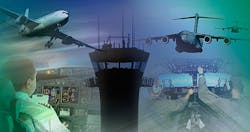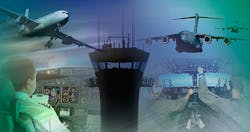Budget finally enables aerospace industry to continue vital work of national interest, AIAA says
RESTON, Va. The American Institute of Aeronautics and Astronautics (AIAA) applauds the passage of the $1.3 trillion FY2018 omnibus package, which includes $654.6 billion for the Department of Defense inclusive of an $800 million net increase for Air Force space programs; $20.7 billion for NASA, an increase of almost $1.1 billion over FY2017; $18 billion for the FAA and a six-month extension of the agency’s authorization; $7.8 billion for National Science Foundation (NSF), growing the agency’s research account by about 5 percent; and $5.9 billion for National Oceanic and Atmospheric Administration (NOAA), an increase of $234 million over FY2017.
"We also urge lawmakers to come to a consensus and pass a long-term FAA authorization bill. Adequate funding and sound policy direction will go a long way in successfully implementing NextGen, integrating unmanned aerial vehicles into the National Airspace System, advancing commercial space transportation operations, and streamlining the certification process of new aircraft, among other things.”
AIAA serves aerospace professionals around the world—who are shaping the future of aerospace—by providing the tools, insights, and collaborative exchanges to advance the state of the art in engineering and science for aviation, space, and defense.


